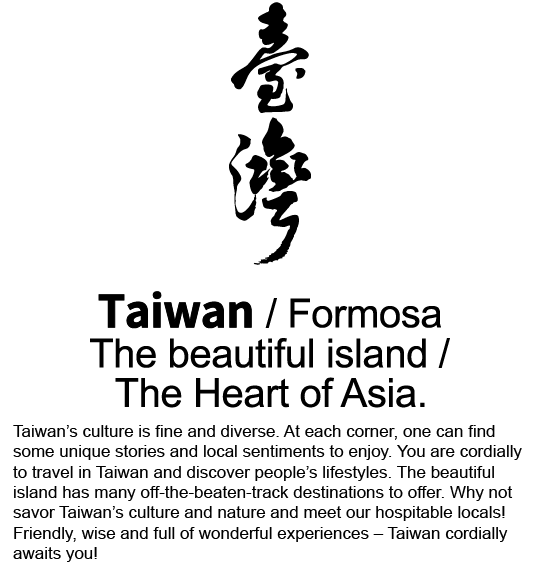ABOUT TAIWAN


Don’t go to Taiwan : The heart of Asia will enchant you.
(A TRAVEL FILM BY UN FILM DE / TOLT.)
Taipei in Action :
Not a single word can describe Taipei, which is elastic with high potential, more than just a city.